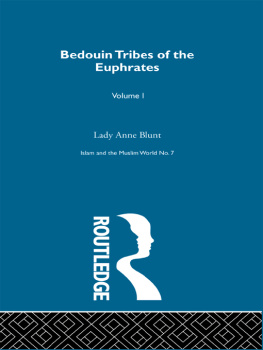Hugh Francis Blunt - The Great Magdalens: Famous Women Who Returned to God after Lives of Sin
Here you can read online Hugh Francis Blunt - The Great Magdalens: Famous Women Who Returned to God after Lives of Sin full text of the book (entire story) in english for free. Download pdf and epub, get meaning, cover and reviews about this ebook. year: 2016, publisher: TAN Books, genre: Science. Description of the work, (preface) as well as reviews are available. Best literature library LitArk.com created for fans of good reading and offers a wide selection of genres:
Romance novel
Science fiction
Adventure
Detective
Science
History
Home and family
Prose
Art
Politics
Computer
Non-fiction
Religion
Business
Children
Humor
Choose a favorite category and find really read worthwhile books. Enjoy immersion in the world of imagination, feel the emotions of the characters or learn something new for yourself, make an fascinating discovery.

- Book:The Great Magdalens: Famous Women Who Returned to God after Lives of Sin
- Author:
- Publisher:TAN Books
- Genre:
- Year:2016
- Rating:4 / 5
- Favourites:Add to favourites
- Your mark:
- 80
- 1
- 2
- 3
- 4
- 5
The Great Magdalens: Famous Women Who Returned to God after Lives of Sin: summary, description and annotation
We offer to read an annotation, description, summary or preface (depends on what the author of the book "The Great Magdalens: Famous Women Who Returned to God after Lives of Sin" wrote himself). If you haven't found the necessary information about the book — write in the comments, we will try to find it.
The Great Magdalens: Famous Women Who Returned to God after Lives of Sin — read online for free the complete book (whole text) full work
Below is the text of the book, divided by pages. System saving the place of the last page read, allows you to conveniently read the book "The Great Magdalens: Famous Women Who Returned to God after Lives of Sin" online for free, without having to search again every time where you left off. Put a bookmark, and you can go to the page where you finished reading at any time.
Font size:
Interval:
Bookmark:
THE GREAT MAGDALENS
Famous Women Who Returned to God after Lives of Sin
By
Msgr. Hugh Francis Blunt, LL.D.
Nihil Obstat: | Arthur J. Scanlan, S.T.D. | |
Imprimatur: |  | Patrick Cardinal Hayes |
September 29, 1927 |
Copyright 1928 by The Macmillan Company, New York.
Reprinted, with the addition of Chapters 19 and 20, by TAN Books and Publishers, Inc. in 2006.
ISBN 0-89555-837-8
TAN Books
Charlotte, North Carolina
www.TANBooks.com
2006
"And behold a woman that was in the city, a sinner, when she knew that he sat at meat in the Pharisee's house, brought an alabaster box of ointment; and standing behind at his feet, she began to wash his feet, with tears, and wiped them with the hairs of her head, and kissed his feet, and anointed them with the ointment."
Luke 7:37-38

St. Mary Magdalen, the penitent woman of the Gospels.
"Many sins are forgiven her, because she hath loved much. But to whom less is forgiven, he loveth less. And he said to her: Thy sins are forgiven thee."
Luke 7:47-48
"And he said to the woman: thy faith hath made thee safe, go in peace."
Luke 7:50
PREFACE
I ONCE heard a very learned and very pious bishop say that he found Tennyson's Idylls of the King one of the finest books of spiritual reading. And, indeed, the Morte d'Arthur, which the non-Catholic mind of Tennyson somehow could not successfully cope with, is essentially a spiritual book, for the story of the Knights of the Round Table is nothing more than a commentary on the folly of sin. It was sin which destroyed the work of King Arthur and his noble knights, the sin of Launcelot and Queen Guinevere. It is sin, and then at the end above it all rises the Magdalen Queen in the glory of her penitence. "And when Queen Guinevere," says the old book, "understood that King Arthur was slain, and all the noble knights, Sir Mordred and all the remnant, then the Queen stole away, and five ladies with her, and so she went to Almesbury; and then she let make herself a nun, and wore white clothes and black, and great penance she took, as ever did sinful lady in this land, and never creature could make her merry; but lived in fasting, prayers and almsdeeds, that all manner of people marveled how virtuously she was changed."
And so she wore out, as Tennyson makes her say,
in almsdeed and in prayer
The sombre close of that voluptuous day
Which wrought the ruin of my lord the King.
When later Launcelot found her there in her abode of penance, she said to him, "Therefore Sir Launcelot, wit thou well I am set in such a plight to get my soul heal; and yet I trust through God's grace that after my death to have a sight of the blessed face of Christ, and at domesday to sit on his right side, for as sinful as ever I was are saints in Heaven." Whether or not the story of Guinevere be mostly legend, there is truth in what the old writer puts upon her lips to say that even greater sinners than she were now saints in Heaven. That is the message of hope which runs through all the ages. It is in the heart of Guinevere; it is in the heart of Anne Boleyn.
I have always felt pity for poor Anne Boleyn. A heartless, scheming woman she was, indeed. She may have been guilty of all the horrible crimes of which she was accused and convicted. But at least she went before her God with a contrite heart. The day before her execution she invited one of her attendant ladies to be seated in the chair of state. The horrified lady replied that it would ill become her to take the seat of the Queen. "Ah, madame," replied Anne, "that title is gone. I am a condemned person, and by law have no estate left me in this life, but for clearing of my conscience." Most of that night she spent in prayer with her almoner. She had made her confession with true penitence. She had cleared her conscience well. As she prepared her head for the block, she said, "Alas, poor head! in a very brief space thou wilt roll in the dust on the scaffold; and as in life thou didst not merit to wear the crown of a queen, so in death thou deservest not better doom than this." Then as she took leave of her weeping ladies, she said, "Esteem your honor far beyond your life; and in your prayers to the Lord Jesu forget not to pray for my soul."
At the end, all of Anne's queenly glories were gone; she was then but a poor, sinful woman anxious only about the clearing of her conscience.
Anne had but little time for repentance, no more than had the Good Thief. Some of her penitent sisters, like La Vallire, like Montespan, measured their contrition by the austerities of the years. But they were all essentially the sameall sisters under the skin, all earnest, whether for the day that was left or the years that were left, to clear their conscience. A mighty task, indeed. It was a holy pope who said that it is a greater miracle to convert a sinner than to restore a dead man to life. A mighty task, but not a hopeless one. Lady Macbeth might despair of cleansing her hand of the "damnd spot": "Here's the smell of the blood still: all the perfumes of Arabia will not sweeten this little hand."
But her sisters in crime knew better. There was no indelible spot to Him Who said, "If your sins be as scarlet, they shall be made as white as snow; and if they be as red as crimson, they shall be as white as wool." The penitent women took those words as a personal message to themselves. Therein was their hope for the "clearing of their conscience." And in the repentance of these women who are witnesses to the folly of sin, we have examples unto our sanctification. St. Teresa found it so, at any rate. One of her favorite saints was St. Mary Magdalen, Magdalen who had sinned much, but who, more than all else, had loved much. "Albert the Great," says Father Sicard in his Life of St. Mary Magdalen, "holds it true that God made two great luminaries, the Mother of the Lord, and the sister of Lazarus; a greater luminary to preside over the day, and a lesser luminary to watch over the night in serving as an example to sinners."
Even lesser luminaries still are these penitent women whose stories I beg to tell, but luminaries nevertheless, shining lights of God's good mercy. Many of them are heroines of penance. It is so easy to imitate their sins, so hard to compete with their tears, so easy to condemn their wickedness, so hard to follow them in their zeal to atone for that wickedness. "David sinned, as kings are wont to do," says St. Ambrose, "but he did penance; he wept and he groaned, as kings are not wont to do." Somehow it takes the saint to appreciate the worth of the penitent. "Sanctity to sin is kind," sings Father Tabb, in one of his unpublished poems. There is nothing more beautiful than St. Jerome's description of Asella, the penitent: "Nothing can be milder than her severity, nothing more severe than her mildness; nothing more melancholy than her sweetness, nothing sweeter than her melancholy. Her figure denotes mortification without the least pride; her words are like silence, and her silence has words; her exterior is always the same; her dress exhibits nothing refined or curious; her ornaments consist in their plainness. The good speak of her with admiration, and the wicked dare not attack her. Let the priests of the Lord on beholding her be filled with profound veneration."
Next pageFont size:
Interval:
Bookmark:
Similar books «The Great Magdalens: Famous Women Who Returned to God after Lives of Sin»
Look at similar books to The Great Magdalens: Famous Women Who Returned to God after Lives of Sin. We have selected literature similar in name and meaning in the hope of providing readers with more options to find new, interesting, not yet read works.
Discussion, reviews of the book The Great Magdalens: Famous Women Who Returned to God after Lives of Sin and just readers' own opinions. Leave your comments, write what you think about the work, its meaning or the main characters. Specify what exactly you liked and what you didn't like, and why you think so.







![Robert Hugh Benson [Benson - Robert Hugh Benson Collection [11 Books]](/uploads/posts/book/139831/thumbs/robert-hugh-benson-benson-robert-hugh-benson.jpg)


